Equitable Access to Science through Making: The Community Science Workshop Model
by Claire Fox @FoxFrequency | October 23, 2018
Claire Fox is co-director and co-founder of Free Science Workshop in Ithaca, NY, which received a 2018 Infy Maker award. She is an NSF graduate fellow in Evolutionary Biology and K-12 STEM Education at Cornell University.
Humans are born with a sense of curiosity. They want to touch an earthworm to see how it moves, to see if they can light a leaf on fire with a magnifying glass, to make a boat from scraps and sail it down a ditch in the spring.
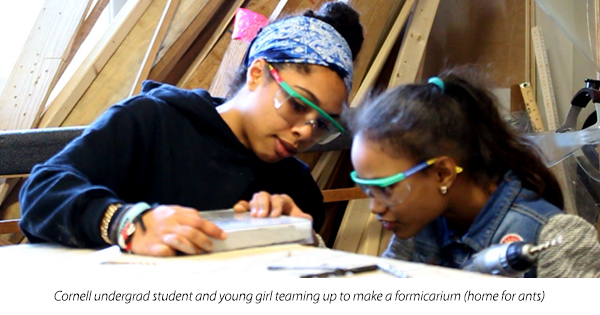
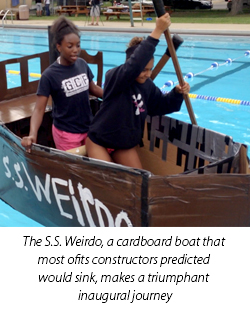
For some people that fascination is nurtured by early childhood experiences, and never fades. Rachel Carson, biologist and author of Silent Spring, grew up exploring the fields and rivers of a 65 acre farm and went on to share her passion for living things in groundbreaking environmental research. Astrophysicist Neil deGrasse Tyson grew up in the Bronx peering up at the moon through a pair of binoculars, marveling at its craters, later introducing a new generation to the wonders of the universe. These scientists started like all humans - as young people with an innate desire to explore and understand.
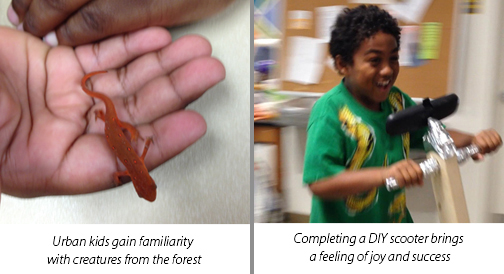
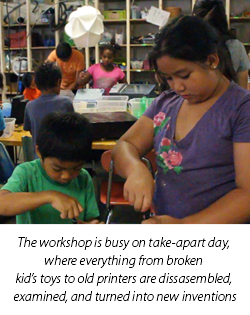
Today, many children are missing out on opportunities to explore their world freely and on their own terms. They have diminishing access to wild spaces to discover, and garages to tinker in; instead they spend time in highly structured school and afterschool environments, or at home consuming media. Opportunities for direct experience and self-driven learning that inspired previous generations of innovators and scientists have become rare. Free Science in Ithaca, NY and its sister Community Science Workshops in CA, are trying to change that.
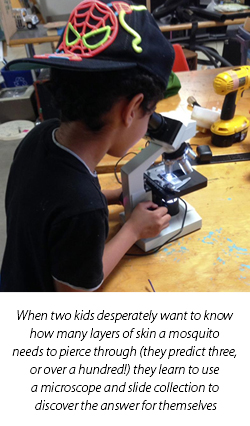
Free Science has a mission of increasing equity in science education and serves primarily low-income, minority, and marginalized youth. Our workshop is free and open for after school drop-in, and is chock-full of inspiration. Next to a cacao tree you find a pile of 50 million year old fish fossils to crack open. Glowing nearby is a cathode ray TV that’s been hacked into an oscilloscope that you can sing into. A take-apart zone has VHS and CD players with their covers removed, inviting further deconstruction to reveal their mysteries. Across the room is a huge snake you can pet, and a baby pigeon in a basket that can be hand-fed. Everywhere, there is an astonishing array of materials and tools to work with. Perched above and under and around are dozens of projects, created by kids themselves.
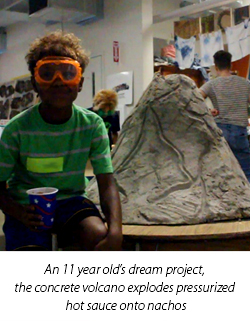
At a Community Science Workshop, there is no division between science, art, tech, nature - and no pre-set curricula or learning objectives to limit what kids do. Learning is driven by the children’s own questions: What is inside of a gas mask and could I make my own? Can I make a boat that all my friends can ride in without sinking? What makes a volcano erupt, and can we make a giant volcano that explodes hot sauce? This is a place where the individual’s ideas, culture, and interests are valued. Youth feel engaged because they can investigate their own questions on their own terms, and create what they want to. In the process of deconstructing and constructing they naturally learn a great deal about the world around them (science!) and what they are capable of. Importantly, they develop a strong sense of agency and ownership. They become agents of their own education.
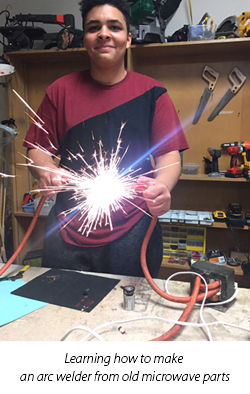
We are pursuing science with a maker mindset, where learning is motivated by the joy of experimentation and sharing. Pushing boundaries, playing with ideas, trying something new - these are behaviors that emerge naturally in an environment that values self directed exploration. Swiss psychologist Jean Piaget wrote that “the principle goal of education” is to create people “who are capable of doing new things… who are creative, inventive, and discoverers.” At Free Science we believe that the adventure of scientific discovery and the satisfaction of making meaningful things are opportunities that every person should be able to access.
"If I had influence with the good fairy...I should ask that her gift to each child in the world would be a sense of wonder so indestructible that it would last throughout life, as an unfailing antidote against the boredom and disenchantment of later years, the sterile preoccupation with things that are artificial, the alienation from the sources of our strength."
-- Rachel Carson, Author, Silent Spring

